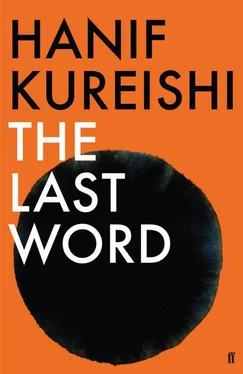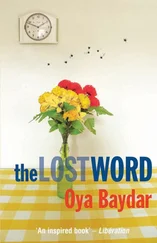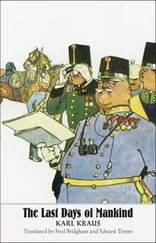‘Oh you poor thing. Do you miss her?’
‘Every day.’
‘Do you speak to her?’
‘Yes. How do you know that?’
She shrugged. ‘The hills are a radio. There are voices everywhere. This house is an ear. Did you hear Mamoon speaking at night?’
‘Not yet, no.’
‘I think you will.’
‘That would be better than nothing,’ he said.
Harry was waiting for a way in. It would happen, he knew. He had to be patient.
Meanwhile, during the following week, he found the routine he needed: reading diaries, letters and papers in the barn until one o’clock, when Liana would announce lunch.
Then, one day, he saw Mamoon in a green velour tracksuit heading for the garden carrying weights. Harry figured that he would be mistaken if he believed for a moment that Mamoon’s vanity, or his competitiveness, had declined with age. In the mid-afternoon, after it had occurred to Harry to invite Mamoon to stretch, run a little, work out a bit, and warm down with him, he learned this would be an opportunity for him to enter the old man’s confidence. Mamoon loved dressing in a variety of sports gear and was keen to kickbox and learn some capoeira moves. ‘If, or rather when, all else fails,’ puffed Mamoon, ‘you could become my personal trainer.’
In the early evening Harry would talk to Liana and help her make supper, before writing up his notes. Later, when he could no longer concentrate, he would become restless. Sometimes he ate alone in a local restaurant, with a book in front of him. If he was lucky, Mamoon would shout out his name, inviting him into the television room. Mamoon was proud of his television, which he called ‘Pakistani’, since it was vastly out of proportion to its surroundings and characteristic, he liked to believe, of deprived immigrants crouching in front of it like primitives contemplating the transit of Venus. Rob had prepared Harry for these whisky sessions, saying that it was in confrontation with the TV that Mamoon came into his own. For most of his adult life, Mamoon had been his own kind of radical, going to some trouble to mock and invert political correctness, rebelling against the fashionable contrarians of his day, hippies, feminists, anti-racists, revolutionaries, anyone decent, kind or on the side of equality or diversity. This was, for a short time, an unusual and even witty idea. Now Mamoon was as bored by this pose as he was by everything else. Occasionally he would try a provocation. ‘Look at that ugly lazy black bastard,’ he’d say, as, instructed by Liana, they drove into town to pick up some local cheese, and having noticed what looked like a shy but enthusiastic African student visiting local churches. ‘Off to rob, rape and mutilate a white woman’s cunt, no doubt.’ But Harry felt Mamoon’s heart wasn’t in it, and that he preferred to ask simple questions about things which genuinely puzzled him. ‘Tell me, Harry, what exactly is Happy Hour? What is lap dancing and the X Factor ? What is wiffy?’
‘Wiffy? Oh, wi-fi.’
Mamoon adored Indian and, even, Pakistani cricket. He had loved, on first coming to Britain, to watch English county cricket on provincial grounds. Monday morning in chilly weather and a light rain, a train ride from London, he would sit down on a bench with a Thermos and a cheese sandwich to watch an obscure game. One wall of his library was covered with pictures of post-war players. In pride of place, though, Mamoon kept a framed photograph of the 1963 West Indian cricket team. Rob had told Harry to be sure to tell Mamoon that his uncle had captained Surrey, and had instructed him to prepare Mamoon by never turning up without either gossip or DVDs of his heroes, Rohan Kanhai, Gary Sobers, Wes Hall, and, from a later period, Malcolm Marshall, Gordon Greenidge, Alvin Kallicharran, and Vivian Richards. It didn’t bore Harry to repeatedly watch them with Mamoon, or even to hear him say, ‘Oh good shot, sir,’ like any other English buffer. Sport, which was unpredictable and existential, and where men were truly tested in the moment, was more important than art, which was ‘soft’. Bowling at Lord’s, taking a penalty at Wembley, playing at Wimbledon, that was ‘the definitive’, as Mamoon called it. ‘If one had played a shot like that at Lord’s, one would die happy, don’t you think? I am a poor entertainer compared to it.’
Mamoon was chatty and alert when he watched football, and liked it if Harry sat with him, drinking whisky and discussing the players and managers. ‘Watching the World Cup with Nietzsche,’ Harry called it, having realised he learned more about Mamoon listening to him discuss the future of Manchester City than by interviewing him about his books, or his ideas on colonialism. Harry’s questions were, at the beginning, gentle and general, and Mamoon made no attempt to conceal his boredom. ‘When did you know you were a writer?’ ‘But I don’t, even now.’ ‘Did you love your father?’ ‘Too much. I was a son rather than a man.’ ‘When did you become a man?’ If a question seemed impertinent or irritated him, Mamoon said nothing but stared into the distance, waiting for the fatuity of the enquiry to occur to Harry.
While Harry sat with the great man, he ruminated on the writers he had grown up loving. Forster, tearing colonialism apart, absurdity by absurdity; a serious Orwell; Graham Greene, prowling around, looking for trouble and death; Evelyn Waugh, who saw almost everything, and hated it. Mamoon was one of the last of that sort, and of equal merit, in Harry’s view. And Harry was in his house; he was walking and discussing seriously with him; he would write his life. Their names would be linked for ever; he would have a small share in the old man’s power. But biography had learned a lot from the scandal sheets; it had been sucked towards the dirty stuff, a process of disillusionment. Unmasking was the thing, leaving just bleached bones. You think you like this writer? See how badly he treated his wife, children and mistresses. He even loved men! Hate him, hate his work — whichever way you looked at it, the game was up. The question had become: what can we forgive in others? How far do they have to go before we lose faith in them?
Harry had loved most of the arts long enough to know that artists had to be excused failings which would condemn the general population. The artist was the proxy, the brave one, the one who spoke, was thanked, and who paid the price. Artists were allowed, indeed encouraged, to lead more libidinous lives on behalf of others who had, of necessity, to leave their jouissance at the door while they worked. And as Harry began to read through the material in the barn, he became aware that he was thinking about the matter Rob had specified. What would he do with Mamoon? Who can think of Larkin now without considering his fondness for the buttocks of schoolgirls and paranoid hatred of blacks — ‘I can hear fat Caribbean germs pattering after me in the underground. .’ Or Eric Gill’s copulations with more or less every member of his family, including the dog? Proust had rats tortured, and donated his family furniture to brothels; Dickens walled up his wife and kept her from her children; Lillian Hellman lied. While Sartre lived with his mother, Simone de Beauvoir pimped babes for him; he envied Camus, before trashing him. John Cheever loitered in toilets, nostrils aflare, before returning to his wife. P. G. Wodehouse made broadcasts for the Nazis; Mailer stabbed his second wife. Two of Ted Hughes’s lovers had killed themselves. And as for Styron, Salinger, Saroyan. . Literature was a killing field; no decent person had ever picked up a pen. Jack Nicholson in The Shining had the right approximation of a writer. If Harry showed merely a decent man rather than a mercenary, he wouldn’t be believed. No one wanted that: it didn’t get anywhere near the hate, heat and passion of a real artist.
Читать дальше












